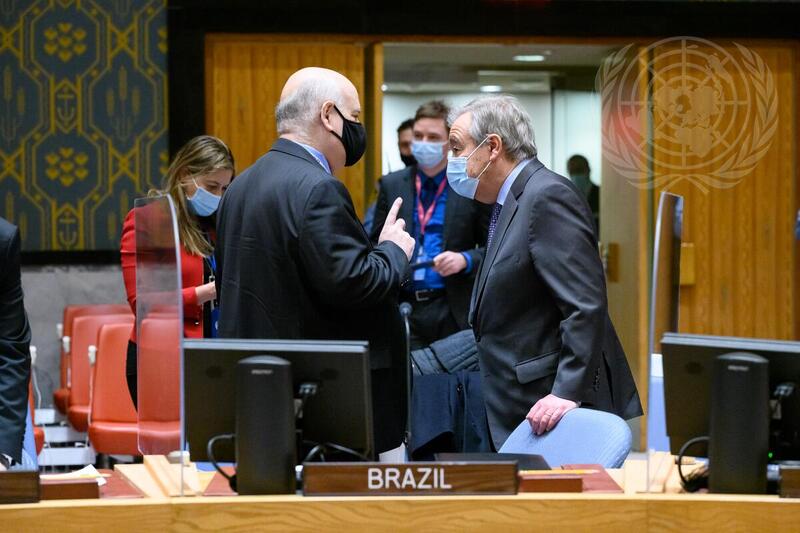Brazil abstained from making substantive declarations as the UN Security Council gathered for an emergency meeting on Monday, after Russian troops entered Eastern Ukraine in the breakaway republics of Donetsk and Luhansk.
The Jair Bolsonaro administration called for a “ceasefire,” the “disengagement of troops,” and “dialogue in a spirit of openness, understanding, flexibility, and a sense of urgency.” It’s unclear what the country means by “flexibility,” but the declaration raised eyebrows from foreign diplomats.
In his remarks to the Security Council, Ambassador Ronaldo Costa Filho called upon the conflicting parties to observe the UN Charter and Minsk agreements.
Yet, he failed to acknowledge Russian aggression and its violation of said agreements, enshrined in a 2015 resolution. Earlier this year, during a telephone conference with U.S. Secretary of State Antony Blinken, Foreign Minister Carlos França highlighted that Brazil supports the resolution as the groundwork for peace negotiations.
Today, however, Brazil omitted the resolution from its statement. Instead, the Foreign Ministry said “the situation created around the status of the self-proclaimed state entities of Donetsk and Luhansk” is related to “legitimate security interests” of both countries, ignoring President Vladimir Putin’s deployment of Russian troops to Ukrainian territory.
“Brazil reaffirms the need to seek a negotiated solution, based on the Minsk agreements, and that takes into account the legitimate security interests of Russia and Ukraine and the need to respect the principles of the United Nations Charter. It appeals to all parties involved to prevent an escalation of violence and to establish, as soon as possible, channels of dialogue capable of peacefully addressing the situation on the ground,” reads the one-paragraph statement from Brazil’s Foreign Ministry.
The Brazilian Report approached the ministry requesting clarification of the ambiguous language but received no response.
The European Union diplomacy answered a request for comment, though did not address Brazil’s position directly. “Russia violated in a blatant way international law, its own international commitments and territorial integrity and sovereignty of its neighbor. This has to be condemned and there is already a wide international front being formed to respond to it with sanctions. We invite all like-minded partners and allies to join our efforts to uphold international law and reject this illegal action by the Kremlin,” said Peter Stano, lead spokesperson for Foreign Affairs and Security Policy of the European Commission. “This is the worst security crisis in Europe created by Russia.”


 Search
Search






































